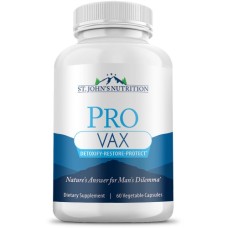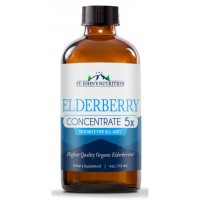PRO-VAX
"Nature's Answer For Man's Dilemma"
Ingredients:
NAC - (N-Acetylcysteine): N-acetylcysteine (NAC) has been used in clinical practice to treat critically ill septic patients, and more recently for COVID-19 patients. NAC has antioxidant, anti-inflammatory and immune-modulating characteristics that may prove beneficial in the treatment and prevention of SARS-Cov-2 as well as with helping to mitigate the activity of spike proteins.*(1)
PROBIOTICS: Probiotics have been investigated as adjuvants in farm conditions and as models to understand their potential in human vaccinations with promising results. In human studies, probiotics were effective in ameliorating seroconversion to vaccines for influenza, rotavirus and other micro-organisms.*(2) Mucosal vaccines that have been evaluated in adults are the oral live-attenuated Salmonella Typhi Ty21a vaccine, the trivalent OPV, the oral cholera vaccine Dukoral and nasally administered attenuated trivalent influenza vaccine for 2007/2008, all of which were tested in small numbers of healthy volunteers with several different probiotics in Europe or North America. The studies indicate higher antibody levels (IgA or IgG) with the probiotics. *(3)
Lactobacillus Acidophilus
Lactobacillus Casei
Lactobacillus plantarum
Lactobacillus reuteri
Lactobacillus rhamnosus
Lactobacillus bulgaricus
Lactobacillus helveticus
Lactobacillus salivarius
Bifidobacterium breve
Bifidobacterium longum
Bifidobacterium bifidum
GLUTATHIONE: A common denominator in all conditions associated with COVID-19 appears to be the impaired redox homeostasis responsible for reactive oxygen species (ROS) accumulation; therefore, levels of glutathione (GSH), the key anti-oxidant guardian in all tissues, could be critical in extinguishing the exacerbated inflammation that triggers organ failure in COVID-19. *(4) Glutathione is an antioxidant that helps keep the necessary balance in place. In addition to being an antioxidant, GSH also plays a part in your body's:
Metabolism of toxins and cancer-causing substances
Natural creation and repair of DNA
Production of protein and prostaglandin
Activation of enzymes *(5)
Modified Citrus Pectin: Hospitalized children with a blood serum level greater than 20 microg/dL, as measured by graphite furnace atomic absorption spectrometry (GFAAS), who had not received any form of chelating and/or detoxification medication for 3 months prior were given 15 g of MCP in 3 divided dosages a day.
Result: This study showed a dramatic decrease in blood serum levels of lead (P = .0016; 161% average change) and a dramatic increase in 24-hour urine collection (P = .0007; 132% average change).*(6) This pilot trial provides the first evidence that oral administration of MCP increases significantly the urinary excretion of toxic metals in subjects with a 'normal' body load of metals. It is suggested that systemic chelation of toxic metals by MCP may in part be attributable to the presence of rhamnogalacturonan II, which has been shown previously to chelate metals. *(7) MCP prevents post-SAH blood-brain barrier disruption possibly by inhibiting galectin-3, of which the mechanisms may include binding to TLR4 and activating ERK1/2, STAT-3, and MMP-9. This study suggests galectin-3 to be a novel therapeutic target against post-SAH early brain injury. *(8)
Trifolium pratense extract: Biochanin A, a ligand of the peroxisome proliferator activated receptors (PPAR) alpha and gamma and the active isoflavone in Trifolium pratense (red clover), has anti-inflammatory properties, and thus could be used as an influenza treatment. The natural immunomodulatory agent biochanin A from Red Clover, which is both a PPAR alpha and PPAR gamma agonist, could have similar effects to gemfibrozil on the course of influenza disease in vivo. The present study is the first evidence demonstrating that BCA attenuated Ml/R injury through suppressing TLR4/NF-kB/NLRP3 signaling pathway-mediated anti-inflammation pathway. *(9)
Arctium extract: In a 2015 study, researchers found that Arctium extract might treat urinary tract infections caused by biofilms. Another study in 2017 found that burdock can also kill other kinds of bacteria. According to one study, inulin, a dietary fiber extract of burdock, supports the growth of some friendly gut bacteria. In a 2014 study, researchers discovered that burdock root drastically lowered inflammation markers in people suffering with knee osteoarthritis. A 2011 study examines the effect of burdock root against some kinds of cancer — particularly those of the pancreas and liver. The anti-cancerous and anti-inflammatory properties of the extract are due to its caffeoylquinic acid derivatives. In a 2015 study, researchers found that burdock root might treat urinary tract infections caused by biofilms. Another study in 2017 found that burdock can also kill other kinds of bacteria.*(10)
references:
(1) Ther Clin Risk Manag. 2020; 16: 1047–1055.
What GSH Supplements Can and Cannot Do for Your Body
Related Products
Covid-19 protocol
Covid-19 protocolSt. John's Nutrition has offered it's customers across the World an effective "Im..
$89.99



